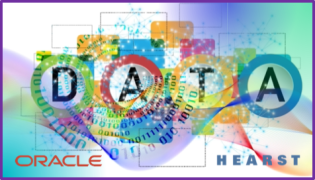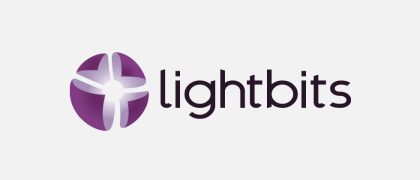
There’s an increasing emphasis today on consolidating data from various sources, including enterprise resource planning (ERP) and supply chain management (SCM) systems. Meanwhile, the trend towards low-code AI process automation is driven in part by the need to make informed business decisions based on unified data. Put these two trends together, and you arrive at a method that simplifies the design and automation of business processes, based on the reservoirs of data from ERP and SCM systems—with minimal coding required. Platforms such as Appian use this approach to improve data management and usability, making it easier to combine and manage various data sources. Low-code AI is essentially being harnessed to simplify the use of ERP and SCM data to improve everyday business operations.
In this article, I will explore the use of automation platforms, focusing on Appian and its deployment across different industries. Additionally, I will evaluate the competitive environment for this sector and discuss the advantages and disadvantages of using these automation technologies.
For more context, you might want to check out some previous insights I’ve shared about ERP based on my long experience with enterprise data technology (EDT) and data management strategies. More of this is detailed in my work on harnessing data for success.
Details about Appian
Appian is a business process automation company founded in 1999 and based in McLean, Virginia. (Fun coincidence: one of its founders is also named Robert Kramer—no relation.) Involved in 2001 in developing Army Knowledge Online, the world’s most extensive intranet at the time, the company shifted its focus in 2005 to launch the Appian Enterprise business process management (BPM) Suite. It later introduced Appian Cloud, enhancing its application management and deployment abilities. Going public in 2017, Appian raised $75 million through an IPO. The company expanded its offerings by launching Appian AI in 2019, thus integrating AI with its low-code development platform. Today, with an annual revenue of $540 million and 2,500 employees, Appian is a key player in the low-code space, serving a wide range of industries.
To provide some context, the interaction between ERP and SCM system data and Appian’s low-code AI platform can be compared to a library filled with books. You might have the best library in the world, yet its potential will remain untapped without some method to sort through and access the books in it. The low-code AI platform is like an efficient cataloging system helping users sort, interpret, and use the data effectively. This makes the vast amount of information in the ERP and SCM systems more accessible and practical to support everyday decisions and process improvements.
More precisely, the Appian AI Process Platform offers tools for automating complex business processes to boost rapid application development. It features an easy-to-use visual interface, a variety of ready-to-use components, and extensive integration capabilities. Drag-and-drop functionality simplifies the development process, minimizing customers’ dependency on standard coding practices.
Appian’s low-code framework is accessible to both developers and non-technical users. It features robotic process automation (RPA) to eliminate repetitive, rule-based tasks and combines AI and ML for advanced data analysis and improved automation. Business rules orchestrate workflows, and AI automates and makes processing easier using Appian’s AI Skill Designer along with API integrations, which connect Appian’s extensive ecosystem.
Appian also has several other key features. Its case management solution offers a complete overview of case-related data. Intelligent Document Processing (IDP) leverages AI and ML to automate the extraction of relevant information from many types of documents for use in business processes. The Data Fabric feature also integrates data from various systems, creating codeless data models, and allows users to analyze this data for reporting and insights, supported by AI-powered chat functionality. And the entire platform emphasizes security and compliance to ensure data protection and adherence to regulatory requirements.
Appian in the Field
Appian’s software can be used to automate a wide variety of business processes. In financial reporting, it can connect ERP and SCM data to generate financial statements and forecasts automatically, reducing manual effort and errors. For inventory management, the software can automate monitoring of stock levels and reorder supplies based on that data. Integrating ERP with customer relationship management (CRM) data through Appian can lead to better customer insights, improving service and sales. In supply chain management, the software can use ERP data to efficiently track shipments and manage supplier relationships, which could lead to cost and time savings. Additionally, automating HR processes such as payroll and onboarding with ERP data might make these tasks more streamlined and less prone to errors.
Appian’s software has been used successfully in multiple industries. Here’s a brief look at some examples:
- Financial Services — A bank automated its loan application processing with Appian, resulting in more efficient management of loans, improved customer satisfaction, and enhanced compliance.
- Healthcare — A healthcare provider used Appian to better manage patient data, integrating various sources of patient information for a comprehensive view of patient histories and treatment plans. This led to better patient care, fewer errors, and a more efficient patient management system.
- Government — A government agency modernized its systems using Appian, reducing paperwork, speeding up public response times, and enhancing data accuracy and transparency.
- Manufacturing — A manufacturer improved supply chain management with Appian, achieving better inventory control, more efficient production, and reduced costs.
- Insurance — An insurance company restructured its claims processing using Appian, enabling faster claim resolution, less manual work, and improved customer experiences.
- Retail — A retail chain used Appian for inventory management and customer service, gaining real-time stock and customer purchase insights for better inventory planning and customer engagement.
Competition
Appian faces a range of competitors across different segments of the business process automation market. In low-code/no-code, Pega Systems offers a complex platform for enterprise processes. OutSystems is known for developer-friendly tools and mobile app development, and Kissflow provides a more budget-friendly, user-friendly option but with limited scalability.
In RPA, UiPath leads with strong automation for repetitive tasks but lacks Appian’s broader process management features. Automation Anywhere offers ease of use and cloud-based options, similar to UiPath, but lacks extensive process management. Blue Prism caters to complex, regulated environments and integrates well with existing systems but may be costlier.
Traditional BPM suites include IBM Business Automation Workflow, a mature platform for complex workflows but less user-friendly; Oracle Fusion Middleware, offering comprehensive integration and automation but possibly too complex for non-technical users; and Tibco Business Studio, which is known for enterprise application integration but may struggle with scalability and adaptability.
Appian’s platform is user-friendly and great for less technical people, speeding up how quickly projects are done. As a cloud-based system, it’s reliable, not difficult to maintain, and flexible enough to handle different types of automation. Plus, Appian works well with many other applications through its API feature. Appian’s integration of AI enhances its automation capabilities, rationalizing decisions and routine tasks. This allows for time and cost efficiencies, enabling employees to focus on more critical tasks. The platform also helps in managing tasks effectively and staying compliant with regulations.
There are some downsides. Appian can be expensive, especially for smaller businesses. For very complex tasks, you might need more technical skills. It might not integrate perfectly with some specialized systems without extra work. Admins will need the training to manage it well, and relying too much on Appian could make it hard to switch to other systems later.
Summary
In today’s rapidly evolving business landscape, tools like Appian are becoming indispensable for companies seeking to modernize their processes and improve operational efficiency. As discussed above, it’s evident that there’s an immense reservoir of data captured within ERP and SCM systems. The Appian platform stands out by offering more than simply the ability to access this data; its automation and other features enable customers to transform this data into actionable insights, thus significantly enhancing data management and EDT strategies.
As we move forward into 2024, the role of data management in driving business decisions and strategies cannot be overstated. Appian’s approach to integrating and analyzing data paves the way for more informed, data-driven decision-making processes. The ongoing revolution in data promises to redefine how businesses leverage data, marking a new era of efficiency and strategic development.






















































































